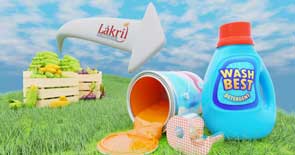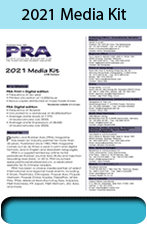Green materials: Låkril launches business for biobased acrylics; Origin Materials/Kolon tie up to develop PEF

Låkril Technologies, a US start-up company, has licensed catalyst technology from the University of Minnesota to convert corn-derived lactic acid to biobased acrylics that provide at least 35% CO2 reduction from today’s petroleum-derived acrylics. Låkril aims to commercialise sustainable acrylics at prices that compete with petroleum using traditional chemical refining approaches, it adds.
The bio-acrylics breakthrough was invented at the University of Minnesota with funding from the NSF Centre for Sustainable Polymers (CSP), a National Science Foundation Centre for Chemical Innovation focused on sustainable polymer research.
“Our goal from the beginning has been to give sustainable materials a competitive edge by making them at incredibly low cost, such that the transition to bio-derived products is effortless for consumers and end users,” says Paul Dauenhauer, Professor and MacArthur Fellow at the University of Minnesota. “With conventional materials made from corn, we remove economic and technical barriers to the sustainable materials economy.”
Låkril Technologies President Chris Nicholas. “Our thermochemical technology provides outstanding yields of bio-based based acrylics from lactic acid allowing us to achieve competitive economics with petroleum-based products.”
Låkril Technologies has already secured US$200,000 in research funding from the Minnesota Corn Research and Promotion Council and the Indiana Corn Marketing Council. These research funds come from the farm families of Minnesota and Indiana and their corn check-off investment and enable the company to establish a laboratory and advance the initial discovery toward commercialisation.
Låkril catalyses sustainability in chemical processes through sales of acrylics and licensing of related catalyst and process technology. The company provides competitive alternatives to high volume petrochemicals to help decrease the world's CO2 intensity. Låkril’s revolutionary catalyst technology for catalytic dehydration of α-hydroxy acids allows the supply of sustainable, biobased acrylic acid and acrylate derivatives as drop-in replacements to the paints, coatings, adhesives, and superabsorbents industries.

In other news, Origin Materials, a US carbon negative materials company, and materials firm Kolon Industries have tied up in a partnership to use furandicarboxylic acid (FDCA) to develop and commercialise polyethylene furanoate (PEF) that has an attractive combination of performance characteristics for packaging and other applications, including enhanced barrier properties when compared with polyethylene terephthalate (PET), degradability, and other qualities.
Origin Materials’ technology platform is expected to produce cost-competitive, sustainable, carbon-negative furandicarboxylic acid (FDCA), the primary precursor to PEF. Kolon Industries’ deep polymer expertise in novel FDCA-based polymers, including PEF, is expected to introduce world-class carbon-negative polymers and chemistries.
Origin Materials and Kolon believe that Origin’s platform, together with Kolon’s demonstrated expertise in polymer chemistry, manufacturing and application development, can accelerate the deployment of environmentally sustainable products and create profitable, competitively advantaged business opportunities for both companies.
“Origin is a pioneer and a global leader in carbon negative chemical technology, and Kolon Industries is a world leader in chemicals and polymers,” said Sung Han, Chief Technology Officer of Kolon Group. “Therefore, the collaboration between these two companies will ensure both carbon-negative and cost-effective Sustainable Polymer Economy, which will further enable the realization of the Circular Economy.”
“Kolon is a highly innovative company and a world leader in polymer development,” said John Bissell, Co-CEO of Origin Materials. “We are thrilled to work together to enable our shared vision for a net zero material economy. This partnership reflects both companies’ commitment to sustainable innovation.”
(PRA)
Subscribe to Get the Latest Updates from PRA Please click here
©2021 Plastics and Rubber Asia. All rights reserved.

©2020 Plastics and Rubber Asia. All rights reserved.
Home Terms & Conditions Privacy Policy Webmail Site Map About Us

















